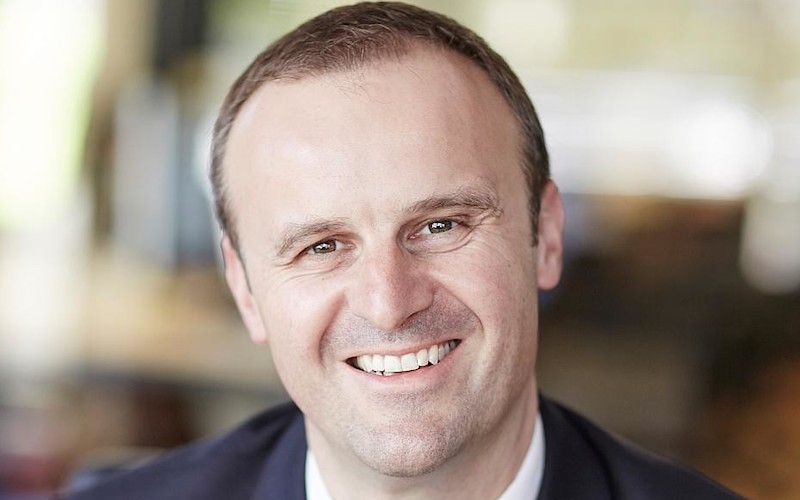The cavalcade of the cretinous in Canberra
February 16, 2022
_“You’ve had your say NOW GO HOME.”
_
De-escalation might be something of a recent buzzword, heard frequently in connection with matters of diplomacy, in mental-health cases, and all too frequently in matters of family violence but there was no better example of it than in the Australian Federal Police’s handling of the recent flag-waving visitors to our national capital.
De-escalation might even be the wrong descriptor. Policing of this ragtag mob was so gentle and so effective that the feared aggression and violence simple did not get launched (save for a couple of relatively minor incidents).
The AFP’s published professional standards open by declaring that the force “operates in an increasingly complex and dynamic environment”. Obviously, that refers beyond mere ACT Policing to “sensitive investigations” and interactions with government and other agencies.
But the weekend’s environment throughout not only the heavily invaded parliamentary triangle but elsewhere around town was plenty “complex and dynamic”.
There was certainly fear among residents about what the Convoy to Canberra (the Cavalcade of the Cretinous) might bring. On Saturday morning, Northbourne Avenue looked like one of the early incarnations of Summernats, but without the sophistication and focus.
Perhaps the greatest chance of the situation sparking into something dreadful lay in our own hands as residents. Understandably angered by the Cavalcade’s disruption of the iconic Lifeline Bookfair, it was not beyond the imagination that some of us normally placid inner-north latte sippers might enjoin conversation with our visitors and not be able to stop ourselves or indeed to not know how far the geniuses in the Convoy could be taken before they did away with words as they sought to make their many and incongruous complaints.
Some of us could not help but utter something, even if it was only the borrowed line from Paul Keating to one particularly ornery horn-blower in Braddon: “Get a job”.
Other stoic residents showed no cognizance of the cloddishness all around them.
And neither, as far as I could tell, did any of the police.
With 10,000 massed and aggrieved (at the government, the parliament, the media, and maybe the moon as well), one might have thought something had to erupt, like at Manuka Oval in 1971 or at the doors of Parliament in 1996 when an estimated 90 personnel were injured as protesters against the fledgling Howard Government’s industrial policies broke in, damaging the forecourt and foyer.
The weekend’s Convoy had the potential to be far worse but there were but a handful of charges (including a serious firearms matter) with alleged harassment of Lifeline volunteers and patrons. Indeed, the most arrests of the whole turnout came on Monday (February 14) when three were detained for trespassing (one of them also for resisting police) after the AFP gave a move-on direction to the one in 10 of the convoy who remained at “EPIC” (Canberra’s showgrounds). Unlike 1971 or 1996, The Canberra Times recorded Detective Acting Superintendent Rod Anderson saying that, despite the arrests, Operation Hawker had been peaceful.
Another big difference with ‘71 and ‘96 was that the Convoy really had no single cause, other than no mandates on vaccination, which was coloured by any number of splinter gripes.
The Times’s Nicholas Stuart put it well: “On Saturday morning the huge crowd, holding red ensigns upside-down and bearing inchoate, angry malevolence, wound like a serpent around Parliament House. They carried flags (bizarrely Croat, Macedonian, and Polish, as well as a varied Australian) demonstrating confused allegiances and suggesting these crowds weren’t, in any way, representative of modern Australia - the ragged throng was far too white; too middle-aged; and too ordinary. And yet in another way, and almost because of this confusion, the crowd was exactly representative of another demographic. A group of people lost, uncertain and confused.”
That all that malevolence was not detonated by its own confusions and divisions was something of a miracle. And the patience of police, and the public calm of Chief Minister Andrew Barr, were, I’d suggest, why. The contrast with the approach of the Prime Minister could not have been more marked. As Stuart bluntly told his readers, this was a situation screaming out for leadership. What Scott Morrison gave them was “a shrinking simulacrum of a leader”.
While Barr was good, the policing was better. Seen only when needed, the cops appear to have acted gently, yet decisively when needed, while never making matters worse.
That took real skill and resolve, an example that I would submit our neighbouring state force might not have been able to match.
Lifeline, it seems, is being inundated with donations, the Government itself kicking in $25,000 and many of us hitting the can with more than we would have forked out at the bookfair had it gone ahead. Let’s hope Lifeline far exceeds its previous bookfair totals, sending a message to the Cretinous Cavalcade to stay away.
The only local losers might be criminal defenders, like this writer, who, when we looked around on Saturday morning, imagined rich pickings in bail court on Monday and the prospect of defended hearings on what the accused would surely have instructed was a great matter of principle.
Well, that’s one batch of unfashionable defendants I’m happy to live without. As the Times put it so well on Sunday in a rare, but thoroughly justified, front-page editorial splash: “You’ve had your say NOW GO HOME.”

